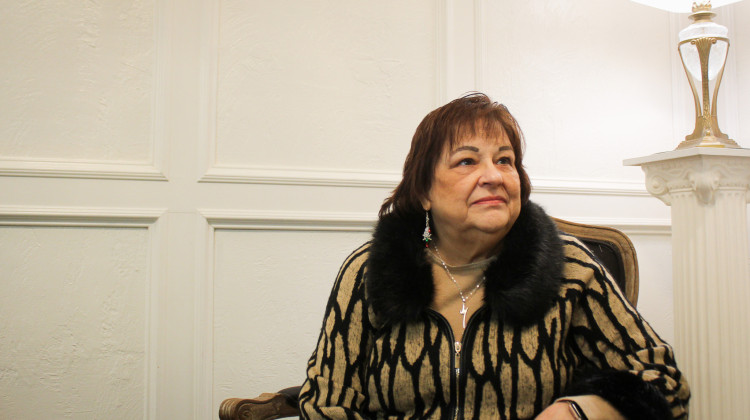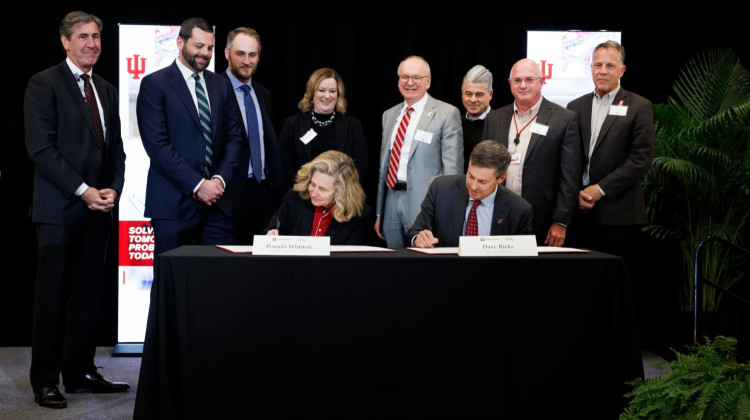
Though many people who have been seriously ill from COVID-19 are older or have underlying health conditions, it’s still unclear what causes certain people to get really sick. Aquarius Bunch was a healthy 27-year-old working at an assisted living facility in the Midwest when she got COVID-19. And she was pregnant.
COURTESY OF UNIVERSITY OF IOWA HEALTH CARE MARKETING AND COMMUNICATIONSThough many people who have been seriously ill from COVID-19 are older or have underlying health conditions, it’s still unclear what causes certain people to get really sick. Aquarius Bunch was a healthy 27-year-old working at an assisted living facility in the Midwest when she got COVID-19. And she was pregnant.
When Bunch tested positive for COVID-19, she quarantined alone at home hoping to ride out her fever and cough.
"I was taking several baths and showers a day. I was checking my temperature. I was drinking tea. I was staying hydrated. I couldn't really eat that much," she recalls.
But Bunch never got better. Instead, she got sicker to the point where she went to the emergency room in Waterloo, a small city in eastern Iowa.
"I really don't remember much. I just remember they were checking my temperature. They gave me some Tylenol," she says. "And I thought I was getting ready to go home."
Then Bunch’s condition deteriorated fast. She had a seizure, and doctors decided she would need to be transferred to Iowa City, some 80 miles away.
"So they quickly contacted our team at the University of Iowa," says Sharon Beth Larson, a doctor at the University of Iowa Hospitals and Clinics, "to say we have a COVID-19 patient who has a periviable fetus. So this is a fetus at an age where it is not likely to survive outside the uterus."
Larson said there was something else to worry about. Not only did Bunch have COVID-19, she was six months pregnant, and her lungs were failing.
"She was at that point, not responsive. She was sedated. She was paralyzed. She was on the mechanical ventilator," Larson says.
Larson, a cardiothoracic surgeon, was called in because Bunch needed more than that ventilator to survive. Her organs still weren’t getting enough oxygen.
Her only chance was a complex, invasive life support procedure known as extracorporeal membrane oxygenation, or ECMO.
Larson said ECMO is used on just 1% to 2% of the sickest COVID-19 patients. It involves surgically attaching tubes and monitors to pump oxygen into the blood. This would give Bunch’s lungs a chance to heal.
"And then we can wean the support and let the patient continue to recover," Larson says.
Larson is the surgical director for the hospital's ECMO program. She says the procedure is used on people who have failing hearts or lungs, like those who are awaiting transplants, as type of bridge.
This can also work for COVID-19 patients, but the odds were stacked against a patient like Bunch. Less than half of COVID-19 patients on ECMO survive, Larson says.
Plus, there was the issue of Bunch's pregnancy. Larson says patients on ECMO nearly always undergo emergency deliveries.
"There is bleeding complications. There's thrombotic, or blood clot complications. So we were doing the very best we could in this very rare and unique situation," she says.
Larson says during the hour that it took to do the procedure, the room was tense, filled with emotion. A maternal fetal medicine team monitored Bunch’s baby the whole time, ready to deliver if necessary. But it wasn’t. And Bunch made it through.
"I remember waking up and I was on Zoom with my family. They were waving me smiling and, you know, talking to me, and I just thought I was in a dream," Bunch says.
Bunch and her lungs improved rapidly. So much so that a little over a week later, she was taken off of ECMO. The next day her ventilator was removed.
And just two weeks after Bunch arrived in Iowa City by air ambulance, she was sent home to Waterloo to her mother and her 3-year-old son.
"It was actually on Mother's Day I got to come home so that was great. That was amazing. That worked out well," she says.
In the whirlwind of what had happened, Bunch never got to talk to Larson while in the ICU. She met her at a check up appointment after leaving the hospital.
"I felt very emotional because, you know, she saved my life. Like I was so glad to be able to see her and express my feelings and emotions about how I felt," she says.
And Larson says Bunch has been a source of inspiration during what she calls a “dark and disturbing” few months at the university hospital battling COVID-19.
"Maybe things will never be normal again in the hospital," Larson says. "But it just felt so good that ...we conquered this virus, that Aquarius conquered this virus, that has taken out so many of our friends and family and loved ones and colleagues."
Bunch is now at resting a her home in Waterloo. Her baby girl is due in August.
This story was produced by Side Effects Public Media, a news collaborative covering public health.
 DONATE
DONATE







 Support WFYI. We can't do it without you.
Support WFYI. We can't do it without you.